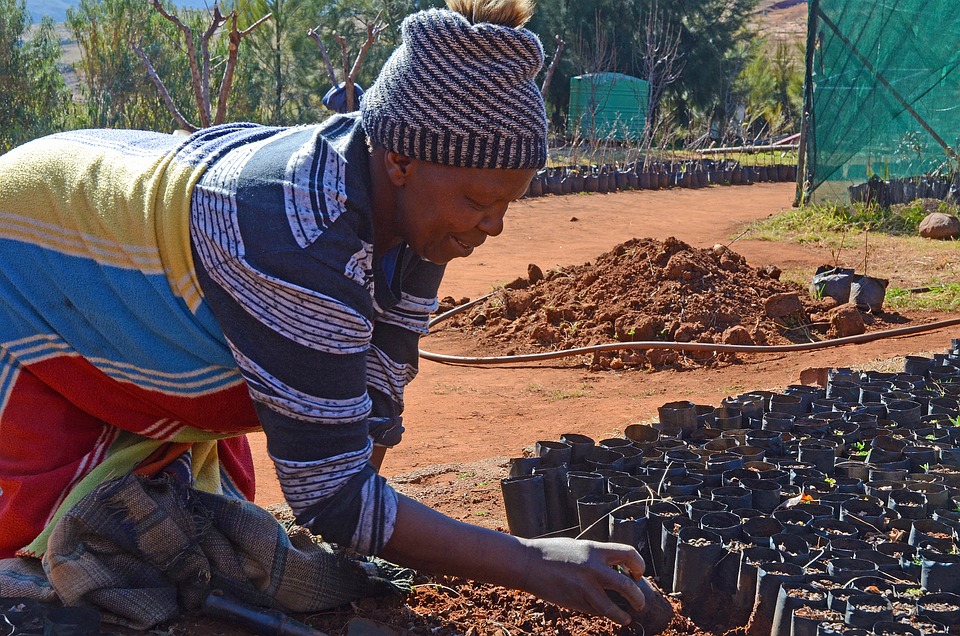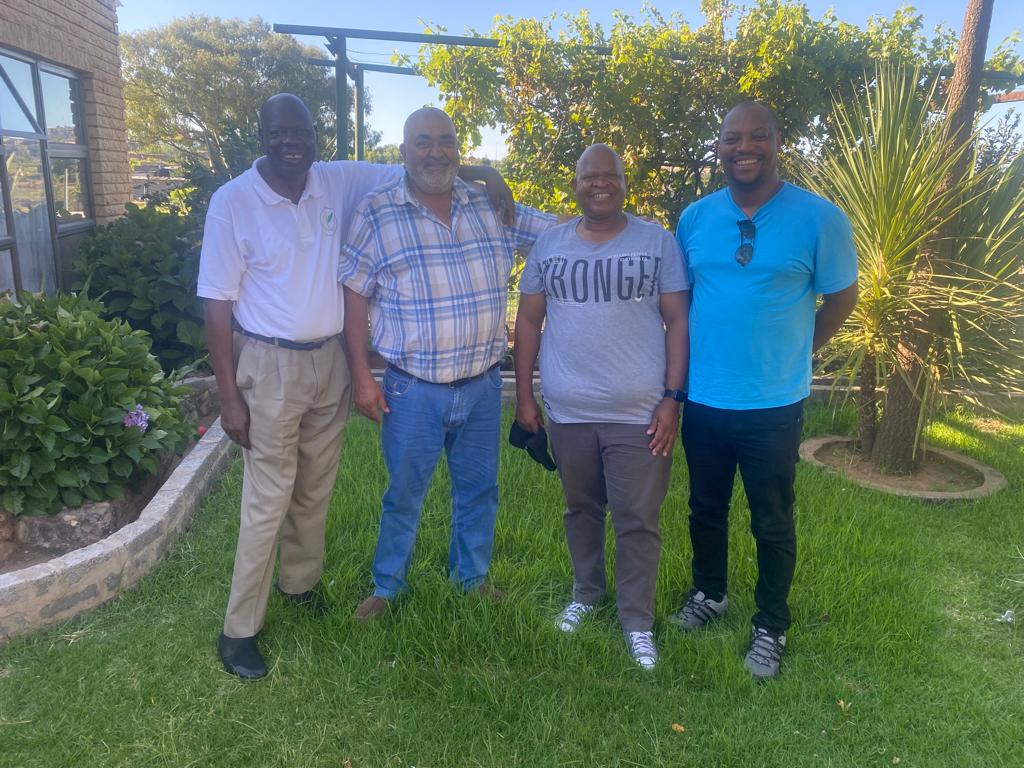
A female farmer in Lesotho happily tends to her nursery in preparation for planting.
Monday 6/02/2023 – The Kingdom of Lesotho’s Ministry of Agriculture and Food Security through the Department of Agricultural Research (DAR) has contracted a team of experts from the Africa Innovations Institute (AfrII) to deliver consultancy services for the joint ‘Agricultural Productivity Programme for Sothern Africa’ project. The consultancy will develop the Kingdom’s National Agricultural Research Policy including a clear road map and a business model for establishing a DAR semi-autonomous Institute for Agricultural Research; the development of the national science /research agenda and the national research and technology development strategic plan for an efficient implementation of the National Agricultural Research Policy.
The Uganda team led by the AfrII CEO, Prof. George William Otim-Nape will develop strategies and working policies to strengthen the National Agricultural Research System of Lesotho through research and innovations development. The consultants will produce and deliver documents including Inception report, Situation Analysis, Road map with narratives of the scenarios and change management strategy, a draft policy, draft National Agricultural Research and Development Strategy, draft Business Model for semi-autonomous DAR, and draft Instructions for the National Agricultural Research Act. They will work closely with different Government Ministries, national and regional institutions and donor and partner organisations that play a major role in the agricultural research arena.
The team of Uganda professionals with strong background in agricultural research and innovations systems and organizational development background was selected following a vital transparent screening process to conduct this consultancy. The Uganda team leader, AfrII’s Prof Otim-Nape is a celebrated plant virologist and former Director General of Uganda’s National Agricultural Research Organisation (NARO 2002-2005). During his tenure, he was instrumental in cementing the national research component; he established, directed and coordinated the operations of 12 Zonal Agricultural Research and Development Institutions (ZARDIs) located countrywide. Prof. Otim-Nape has 20+ years’ experience in agricultural research and innovations.
The consultants were recently engaged in a stakeholder’s validation workshop organized by the Department of Agricultural Research – DAR in the Ministry of Agriculture & Food Security, Kingdom of Lesotho, to share results from the Situation Analysis conducted. The team had close to a month long stay in Lesotho, and were engaged in a series of activities including conducting a situation analysis to identify major challenges and constraints, opportunities and a clear vision for the functional and effective national agricultural research system/innovation system. They will develop policy documents based on the outputs of the situational analysis and scenario whereby a clear implementation framework is proposed with targets and milestones for monitoring the policy enactment and its successful implementation; develop a science agenda for Lesotho, a clear roadmap and strategic plan for implementation of the policy recommendations for efficient and functional NARS, and also develop a national agricultural research policy. To this effect, a complete Situation Analysis report will then be submitted to the kingdom for further action.

AfrII’s Prof. Otim-Nape (left) poses with friends from the Ministry of Agriculture and Food Security -Lesotho during his recent work stay in Lesotho
Background on the National Agricultural Research System of Lesotho
The Department of Agricultural Research (DAR) is one of the institutions that constitute the National Agricultural Research System (NARS) and is the apex research organization in the country expected to contribute significantly to economic growth through introduction, generation, adaptation, application and transfer of improved technologies. Alongside, the DAR is the National University of Lesotho which contributes significantly to research in the agricultural sector through student and academic research projects and initiatives in the crop and livestock sub-sectors.
Despite the various lined departments that constitute the DAR, it has however been shown that the research system has not been able to contribute efficiently and effectively to the achievement of the desired growth of the agricultural sector du e to inherent weaknesses of the DAR, which is to play a leading and coordination role in the NARS. Weak linkages between agricultural research output (by research organizations and academia) extension services and farmers have also been highlighted in previous initiatives. The NARS including DAR have been operating over the past years in a complete vacuum as far as research policy and regulatory framework is concerned. This is largely due to the fact that there is no national research policy and legal framework that sets the basis for the national research agenda. This vacuum has led to absence of efficient and effective efforts for research by the National Agricultural Research System and the associated organizing framework for the system. With regard to policy decision support systems, it appears that to a large extent, policy decisions on NARS-related issues are made without the benefit of proper processes and often not supported by regulatory frameworks. The establishment of DAR itself as a key component of the NARS was made with neither Policy nor legislation, resulting in a situation where the department has responsibilities with no authority, which would have been provided through legislative framework. It’s against the foregoing background that the establishment of a semi-autonomous National Research Institute/Council is being recommended to address the desire of the Government of Lesotho to have an agricultural research system that responds to the needs of stakeholders and contributes to poverty alleviations as well as drive economic growth through robust Innovation Systems that embrace the concept of Integrated Agricultural Research for Development (IAR4D). Such a system should not only exist by name but should be fully functional and well-coordinated with clear policy direction and mandate (national agenda) on research. It needs to be properly networked and should facilitate collaboration with national, regional and international research organizations for acquisition and dissemination of knowledge and technologies for the benefit of the farming communities and their advisory service providers.



